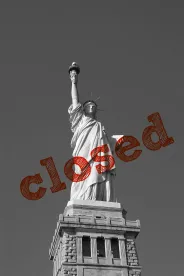As more state and local governments weigh “shelter in place” orders in an effort to combat the spread of COVID-19, many businesses across the country are asking what constitutes an “essential” business and what to do if you don’t make the cut. The answers are not always clear or consistent, but there are steps you can take to be prepared.
In the event of a “shelter in place” order or a state’s COVID-19 mitigation initiative, the distinction between “essential” and “nonessential” is crucial in assessing what options are available to a business: whether it may maintain its business operations (adjusted for COVID-19 risks), or must reduce operations except for specified activities necessary to preserve the business and allow remote working (commonly referred to as “minimum basic operations”), or close for a period of time.
There will be uncertainty and lack of consistency state-to-state as to what is a “nonessential” business, and how authorities approach these issues. California, Illinois, and Connecticut have each incorporated parts of the Memorandum on Identification of Essential Critical Infrastructure Workers During COVID-19 Response from the US Department of Homeland Security, Cybersecurity & Infrastructure Security Agency (CISA). CISA identifies 16 sectors considered to be “essential,” and is part of the National Infrastructure Protection Plan (NIPP). Rather than a federal mandate, the CISA guidance and listing is advisory for state and local governments; for businesses, it provides crucial guidance on balancing maintenance of critical infrastructure business functions with COVID-19 precautions.
States have taken different approaches on how closely they follow the CISA list. For example, the California Order implements it as its listing of “essential businesses” under that State’s order. Illinois and Connecticut provide listings of “essential businesses,” but note in the Order that these lists are intended to align with the CISA guidance.
Other orders, however, have provided different “essential business” definitions – for example, the Alameda County order that affected San Francisco. Pennsylvania, New York, and New Jersey have also each defined their own lists of “essential” business. So there will be no “one size fits all” solution, and it is critical to refer to the specific state or local closure order that applies to your business. Furthermore, these orders are already being revised and refined.
While it is ultimately up to each city or state to make these decisions, there are some businesses that will generally be considered to be essential. These will not need to close unless specifically ordered, and include any business involved in healthcare, first responders, food production and delivery, medical supply, public utilities, communications and information technology, grocery stores, and gas stations. Essential business employers should establish an education and logistics support team to allow critical functions to be performed while minimizing exposure among employees required to perform their essential functions. For example, in consultation with Governor DeWine, the Ohio Department of Health, Governor DeWine included in its order a requirement for essential businesses to comply with defined social distancing requirements, designate six-foot distances for employees and customers in line to maintain appropriate distances with signage or tape, how to use hand sanitizer and sanitizing products, separating vulnerable populations and postings on how populations can best reach the facility remotely.
Companies that supply the operations of these exempted businesses may also be considered “essential.” So far, most of the State orders do not fully embrace the notion of the supply chain that allows specific “essential businesses” to operate. If your company supplies businesses that clearly fall into the “essential” category, there’s a good argument that your business is “essential” as well. It is also possible that some, but not all, of your business operations are “essential.”
The list of “nonessential businesses” also varies from state to state, but the following businesses are largely considered nonessential:
|
Dine-in Restaurants and bars |
Casinos and racetracks |
|
Theaters |
Shopping malls |
|
Gyms and recreation centers |
Bowling alleys |
|
Salons and spas |
Skating rinks |
|
Museums |
Sporting and concert venues |
State of Emergency
As of March 23, 2020, there have been state of emergency declarations from the federal government in all 50 states, and in all populated American territories because of the COVID-19 pandemic. Many of these emergency declarations have closed schools, limited public gatherings, and limited restaurant activities to take out or delivery.
Challenging the Orders
The power to issue such orders are state specific and are based in from state constitutional, statutory, and regulatory frameworks. They must be reviewed on a bespoke basis by anyone affected that wishes to understand their application, enforcement mechanisms, and judicial review availability and proceedings. There are some general characteristics, however, that provide a starting point for any person or company adversely affected by such a decree or order.
Typically, an isolation or quarantine order is designed to address the outbreak of a communicable disease or condition caused by an infectious agent – when the occurrences of a communicable disease exceed the usual number of cases. The authority of health directors or similar officials to issue such orders is generally limited to severe circumstances: when public health is endangered, when all other reasonable means for controlling the problem have been exhausted, and there are no other less restrictive alternatives.
Isolation authority usually gives an official the authority to issue orders limiting the freedom of movement or action of a person if they have (or are reasonably suspected to have) a listed communicable disease or condition.
Quarantine authority usually gives an official the authority to issue orders limiting the freedom of movement or action of a person who has been exposed to (or is reasonably suspected of having been exposed to) a listed communicable disease.
Some states, like Georgia, also provide for health directors to engage in surveillance of people with communicable diseases until there is no longer a threat to public health posed by the people surveilled. Many states, including North Carolina, also give health directors the authority to limit freedom of access to locations thought to be contaminated with an infectious agent. Many states (including North Carolina) also authorize health directors to quarantine people who have not been immunized against a communicable disease when an outbreak requires immunizations to help control the spread of the disease.
The exercise of isolation and quarantine authority is typically limited to state or local health directors or public officials acting in cooperation with health directors. These orders often have a limited term – usually between 10 and 30 days. State or local officials may seek longer terms for isolation or quarantine orders by petitioning a court or other tribunal for extensions. Generally, courts may grant extensions when the order is necessary to prevent or limit the spread of the communicable disease; the burden is often on the public official to show that the order should be extended.
Ignoring an isolation or quarantine order or other state of emergency declaration during the period of emergency may be a violation of state law. With the courts closing or delaying cases, challenging an order will be difficult and not quickly resolved. History tells us these matters tend to be worked out after the fact. Inform your workforce about your “essential business” status, but do not encourage them to defy law enforcement – they should have a number to call within the company should they encounter any difficulty getting to work. Also determine whether CISA or other state or federal agencies may have made available assistance letters for your particular industry sector that could assist your employees in performing their functions. For example, CISA has made available generic assistance letters for the communications sector, asking that the bearer be “extended any courtesy” to access facilities or be provided fuel.
Documenting that you are essential
If you determine after consulting legal counsel that your business qualifies under your state’s specific definition of “essential,” start documenting both how you are “essential” and what you are doing to protect your workforce while they are working. This includes identifying your customers and your products’ applications, either directly or by supplying essential businesses with needed parts or services. Again, it is important that your position align with the definition of “essential” under your specific state’s rules. If your business operates in multiple jurisdictions, work with counsel to determine if there is an approach that meets the requirements in each.
Be ready to demonstrate clearly that you are implementing procedures that comply with OSHA/HHS Guidance on Preparing Workplaces for COVID-19 or onsite workers – for example, 10 or fewer people in any one space (including creating separate break rooms to reduce gathering); six feet of separation if at all possible; regular sanitizing of work areas and cafeterias; and sending people home who are symptomatic. Make sure to document the precautions you are taking.
What to do if you are closed
If you have not already done so, prepare contingency planning in case a “shelter in place” order prevents your business from operating or your workers from reporting for work. A “shelter in place” order may restrict the availability of your workforce even if you are an “essential business.” Some employees may not feel safe coming to work or may be unable to commute due to public transportation and travel restrictions.
Also continue to document your business losses related to COVID-19 for use when state or federal benefits are available or for insurance claims. In the coming weeks, monitor for state and federal aid packages that may be implemented, and consider being ready to apply as soon as possible. Consider whether business loans or other credit options are viable and available to your business.
Check any business interruption insurance coverage you may have for application to this crisis. Check with your agent now to understand your business disruption policy, how it works and what it protects, and how to make a claim when necessary. If the closure will cause you to breach your contractual obligations, talk to counsel about force majeure and other contractual defenses.







 />i
/>i

